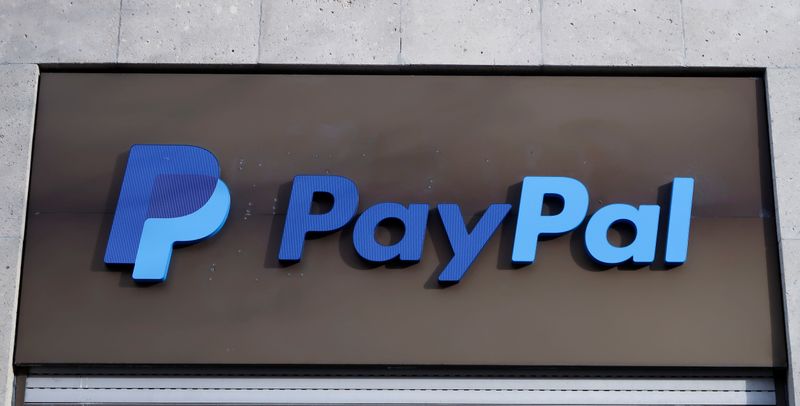(Reuters) - Wall Street analysts looked past a surprisingly shaky first quarter for payment processors PayPal Holdings Inc (O:PYPL) and Square Inc (N:SQ) hoping that the shift towards more online buying will see their businesses surge this year.
Square reported a surprise loss in the first quarter on Wednesday, as the coronavirus outbreak shut down large parts of the global retail industry and operating expenses rose, while PayPal's profit plunged 87.4% after it boosted credit loss reserves.
The decline tied in with the record drop in U.S. retail sales in March, indicating shoppers cut back on non-discretionary spending. (https://reut.rs/2LadvuU)
Analysts, however, bought into PayPal's predictions that the second quarter would be far brighter as more consumers get back to work and the boost the crisis has given to online sellers beds down.
The company reported "unprecedented" use of its platform over the past month, adding a record 7.4 million net new customers for the month of April.
Square, best known for its signature small white credit card readers that are plugged into smartphones, also said it had seen improving payment volume growth rates since mid-April.
"On May 1, we had our largest single day of transactions in our history, larger than last year's transactions on Black Friday or Cyber Monday," PayPal's Chief Executive Officer Daniel Schulman told analysts on a post-earnings conference call.
At least 11 brokerages raised their price target on PayPal following its results, while eight brokerages did the same on Square.
Square's stock dipped 2.1% in premarket trading on Thursday, reflecting the poor first quarter. Shares in PayPal popped 10%.
"Driven by changes in consumer shopping behavior tied to severe COVID-19 related health concerns, the shift to e-commerce is accelerating, making PYPL (PayPal), a pure-play in e-commerce payments, the greatest beneficiary in our coverage universe," Evercore analysts said.
Shopify Inc (TO:SHOP), said on Wednesday more people were shopping online as the virus outbreak kept them at home and rivals eBay Inc (O:EBAY) have also seen higher-than-usual demand.
Jeff Bezos, Amazon.com Inc's (O:AMZN) founder and the world's richest person, said last week in a statement, "we're not thinking small," a sign that the e-commerce company would invest heavily during the pandemic.
The world's second-largest payment processor Mastercard Inc (N:MA) said last month it expects consumer spending to gradually return to "pre-COVID" levels as people start using their cards again on clothing and domestic travel.

"We expect e-commerce volumes will be insulated throughout the downturn and expect consumer shifts to e-commerce in certain spend categories will be durable post-downturn," Compass Point analysts said.